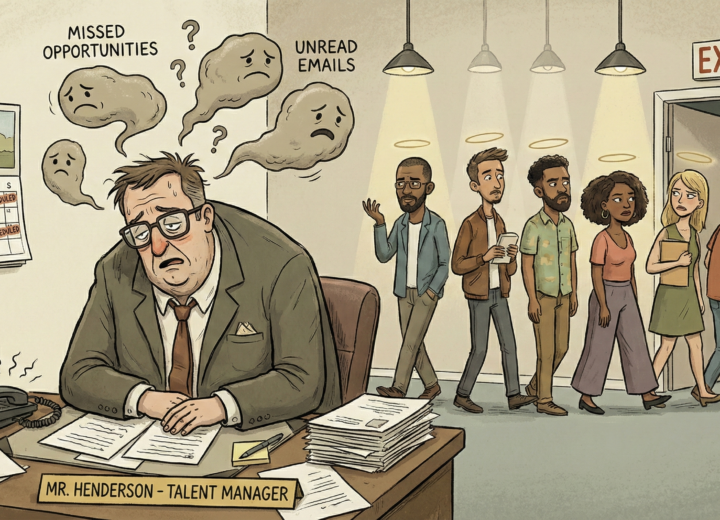The “Workplace Family” Illusion: When Does Camaraderie Become Unhealthy Co-dependence?
In the bustling boardrooms of Accra, the vibrant tech hubs of Nairobi, the dynamic financial districts of Johannesburg, and the thriving business centers across Nigeria, a powerful and often comforting narrative prevails: “My colleagues are like my family.” This sentiment speaks to the deep bonds forged over shared deadlines, the collective relief after a successful project launch, and the camaraderie that can make demanding work environments feel less daunting. This sense of belonging is often seen as a cornerstone of positive workplace culture, fostering collaboration and boosting morale. However, beneath this seemingly benevolent façade lies a potential pitfall: the “workplace family” can, if left unchecked, morph from healthy camaraderie into a subtle yet damaging co-dependence, blurring crucial professional boundaries and, at times, even leading to detrimental romantic entanglements.
Companies across Africa increasingly recognize the importance of strong interpersonal relationships in the workplace. Research, including a study on public service performance in Bayelsa State, Nigeria, suggests a “moderate and significant positive relationship between interpersonal relations and public service delivery outcomes,” fostering job satisfaction and organizational citizenship behavior (Amakiri, Nein & Oyinmiebi, 2024). Similarly, findings from private universities in Mogadishu indicated that positive employer-employee relationships significantly enhance job satisfaction and employee performance (Frontiers, 2024). However, the same study also paradoxically noted that while connections among academic staff were linked to higher job satisfaction, they negatively impacted performance outcomes, hinting at the complex and sometimes contradictory nature of these relationships.
The Magnetic Pull of the Workplace Family in Africa:

Why does the “workplace family” resonate so strongly, particularly within African business hubs?
- Extended Time and Shared Pressures: Employees in busy business hubs often spend the majority of their waking hours with colleagues. The shared grind, the common goals, and the unique stressors of the African business landscape naturally create a sense of understanding and solidarity.
- Inherent Need for Belonging: Humans are fundamentally social beings. The workplace often becomes a primary source of social interaction, offering a sense of community and a space to seek validation and acceptance.
- Cultural Emphasis on Communitarianism: African cultures deeply value community and extended family ties. This inherent cultural predisposition can lead individuals to naturally extend familial dynamics and expectations into their professional lives, making the “workplace family” analogy feel organic and comforting (Employee of the Year Awards, 2023).
The Perilous Shift: From Support to Unhealthy Co-dependence
While a supportive work environment is undeniably beneficial, the “workplace family” illusion can pave the way for several unhealthy dynamics:
- Erosion of Professional Boundaries: The most immediate danger is the blurring of lines between personal and professional life. This might manifest as unspoken expectations of availability outside of work hours, pressure to participate in non-work-related social events, or feeling obligated to share intimate personal details. In communal African office settings, this can be particularly challenging, as “professional and social lives overlap” (Employee of the Year Awards, 2023).
Amaka, a manager in one of the leading financial institutions, was having a birthday celebration on a Sunday in Lagos. She invited all her colleagues, but she stayed in one of those parts of Lagos that had regular crazy traffic. For her colleagues to attend, they would spend more time on the road going to and returning from her place than even if they decided to spend all day with her. Based on this, only a handful attended. She took it personal , and decided to give all those that didn’t attend the silent treatment stating that she was deeply hurt as she took them as family. She took it as far as tagging them as not being team players in their appraisal.
- Emotional Enmeshment: Co-dependent workplaces often see individuals becoming overly invested in each other’s emotional well-being. While empathy is crucial, this can devolve into taking undue responsibility for colleagues’ feelings, constantly seeking their approval, or feeling guilty for setting personal boundaries. This emotional burden can be draining, diverting focus from work.
- Resistance to Constructive Feedback: Just as it can be challenging to criticize a family member, in a “workplace family,” delivering or receiving constructive feedback can become fraught with emotional baggage. The fear of “hurting” someone’s feelings can hinder professional growth. Studies show that open and honest feedback mechanisms are critical for high-performing teams, a dynamic often stifled in overly “familial” environments.
- Compromised Accountability: Managers, viewing their team as a “family,” might hesitate to address underperformance or unprofessional behavior, fearing damage to personal relationships. This can lead to resentment among highly performing employees and negatively impact on overall organizational productivity.
- Burnout and Mental Strain: The pressure to be constantly available, emotionally invested, and involved in colleagues’ issues can lead to significant burnout. Employees may feel compelled to take on extra work or responsibilities out of a sense of “familial duty,” compromising their own well-being. The Society for Human Resource Management (SHRM, 2023, cited by The Business & Financial Times, 2024) found that employees in workplace relationships report elevated stress levels, which can affect their productivity.
The Unspoken Consequence: Unprofessional Romantic Entanglements

A significant, yet often overlooked, consequence of blurred boundaries within the “workplace family” is the increased propensity for unprofessional romantic relationships. When professional and personal lives intertwine, the workplace becomes a natural breeding ground for romantic connections. While some workplace romances can be benign, the “workplace family” dynamic can create an environment where:
- Boundaries are Non-Existent: The “family” ethos can make it seem natural for personal attraction to evolve into romantic relationships, often without the necessary professional safeguards.
- Power Imbalances are Ignored: The most problematic scenario involves relationships between individuals at different hierarchical levels. This can lead to perceptions of favoritism, bias, and even allegations of harassment if the relationship sours (LearnDrive, 2025; The Business & Financial Times, 2024; Techpoint Africa, 2023). Colleagues may perceive that promotions, assignments, or evaluations are influenced by the romance, eroding trust and team cohesion.
- Confidentiality is Compromised: Personal intimacy can inadvertently lead to the sharing of sensitive business information, posing a risk to the company’s data security (LearnDrive, 2025).
When Romance Ends: The Ripple Effect on Productivity
The fallout from a failed workplace romance can be particularly devastating for company productivity. Unlike personal relationships where individuals can often distance themselves, a breakup in the workplace forces daily interaction, leading to:
- Tension and Hostility: Emotional fallout can manifest as awkwardness, tension, or even outright hostility between the former partners, making collaboration difficult (LearnDrive, 2025; Employee of the Year Awards, 2023).
- Reduced Focus and Morale: The emotional distress can significantly impair focus, leading to decreased individual productivity. Moreover, colleagues may feel pressured to “pick sides,” further straining team dynamics and negatively impacting overall morale (LearnDrive, 2025). This can lead to divisions within the team and decreased productivity and collaboration (The Business & Financial Times, 2024).
- Increased Turnover: In some cases, the environment becomes so unbearable that one or both parties may seek employment elsewhere, leading to staff turnover and the associated costs of recruitment and retraining (LearnDrive, 2025). The challenges of navigating a breakup in smaller African offices, where professional and personal circles often overlap, can make post-breakup interactions particularly difficult, impacting job satisfaction (Employee of the Year Awards, 2023).
The Case of “Aunty Ngozi”

Let’s consider the story of Ngozi, a marketing executive in a thriving tech company in Lagos. The team she was part of prided itself on being a close-knit “family.” They socialized frequently after work, shared personal problems openly, and often covered each other on tasks. Initially, this felt incredibly supportive. However, over time, the lines blurred. Ngozi found herself constantly being asked for favors outside of her job description because “that’s what family does.” When she occasionally declined due to personal commitments, she was met with guilt-tripping and accusations of not being a “team player.” This emotional pressure, coupled with the increasing workload she took on to support her “work family,” led to significant stress and eventually burnout. Ngozi realized that the intense camaraderie had become a cage, hindering her professional growth and impacting her personal life.
Recognizing the Red Flags: Is Your Workplace Family Healthy?

It’s crucial to be aware of the warning signs that indicate your workplace camaraderie might be veering into unhealthy co-dependence:
- Do you feel obligated to attend social events even when you don’t want to?
- Do you find yourself constantly worrying about your colleagues’ personal problems?
- Is it difficult to say “no” to requests, even if they are outside your responsibilities?
- Do you feel guilty for taking time off or prioritizing your personal life?
- Is constructive feedback often taken personally and met with defensiveness?
- Are performance issues within the team consistently overlooked or excused due to personal relationships?
- Do you feel drained or emotionally exhausted after interacting with your colleagues?
If you answered “yes” to several of these questions, it’s a sign that the “workplace family” dynamic might be hindering your well-being and professional growth.
Cultivating Healthy Professionalism: A Path Forward

Building strong, supportive relationships at work is vital, but it’s crucial to maintain healthy boundaries. Here’s how individuals and organizations across Nigeria and Africa can foster genuine camaraderie without falling into the trap of co-dependence or destructive romantic entanglements:
- Establish and Enforce Clear Boundaries: Both individuals and organizations must define and communicate clear boundaries between professional and personal lives. This includes setting expectations for availability outside of work hours, respecting personal time, and discouraging the sharing of excessively personal details in professional settings. Companies should also have clear policies on workplace relationships, especially concerning power imbalances, requiring disclosure to HR to manage potential conflicts of interest (Faidi HR, 2024; Tokiso Dispute Settlement, n.d.).
- Prioritize Professional Growth and Accountability: Focus interactions on work-related objectives, professional development, and collaborative problem-solving. Managers should lead by example, in setting clear professional expectations and ensuring accountability for performance, independent of personal relationships.
- Promote Effective Communication and Conflict Resolution: Foster a culture where constructive feedback is welcomed and delivered respectfully. Implement robust conflict resolution mechanisms that address interpersonal issues professionally, especially in the aftermath of a failed workplace romance (LearnDrive, 2025).
- Invest in Work-Life Balance Initiatives: Encourage employees to maintain a healthy work-life balance. This means actively discouraging overwork stemming from a sense of “familial obligation” and promoting activities that support mental and physical well-being.
- Educate on Workplace Romance Policies: Companies should have clear, well-communicated policies regarding workplace romance, particularly on vertical relationships, disclosure requirements, and conduct during and after a relationship. These policies help manage expectations and mitigate risks like favoritism and sexual harassment (Faidi HR, 2024; Tokiso Dispute Settlement, n.d.).
Re-evaluate Your Workplace Dynamics Today
Take a moment to reflect on your relationships at work. Are they characterized by mutual respect, professional support, and healthy boundaries? Or do you feel trapped in an enmeshed “family” dynamic that drains your energy and hinders your growth?
For Employees:
- Identify Your Boundaries: Understand your personal and professional limits. It’s okay to say “no” respectfully.
- Prioritize Your Well-being: Your mental and physical health are paramount. Don’t let perceived “family” obligations compromise them.
- Know Your Company’s Policies: Be aware of guidelines on workplace relationships and professional conduct.
For Leaders and HR Professionals:
- Model Healthy Boundaries: Leaders must demonstrate healthy work-life boundaries and professional conduct.
- Develop Clear Policies: Implement and communicate comprehensive policies on workplace relationships, addressing favoritism, conflicts of interest, and post-breakup scenarios.
- Foster a Culture of Accountability: Ensure that performance is managed objectively, independent of personal relationships.
- Invest in Professional Development: Encourage team building that enhances skills and collaboration, rather than solely focusing on personal bonding.
The “workplace family” illusion, while appealing, can mask deeply unhealthy dynamics that stifle growth and impact productivity. Let’s strive to build workplaces across Nigeria and Africa where strong professional relationships thrive on clarity, respect, and accountability, allowing both individuals and businesses to flourish authentically.
What are your thoughts?

Have you experienced the “workplace family” dynamic in your career? How did it impact you, positively or negatively?
Share your experiences and insights in the comments below to contribute to this crucial conversation!
#WorkplaceCulture #HealthyBoundaries #ProfessionalDevelopment #NigeriaBusiness #AfricanWorkplace #EmployeeWellbeing #CareerGrowth #WorkplaceRomance #HRManagement #Productivity
Ayo Emakhiomhe.





